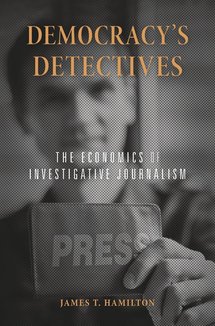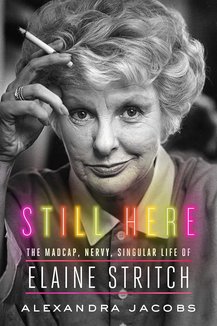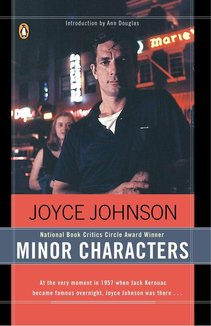Recommended Books

Democracy’s Detectives: The Economics of Investigative Journalism
Author:
James T. Hamilton
ISBN 13:
978-0674986817
Winner of the Goldsmith Book Prize, Shorenstein Center on Media, Politics and Public Policy at the Harvard Kennedy School of Government Winner of the Tankard Book Award, Association for Education in Journalism and Mass Communication Winner of the Frank Luther Mott–Kappa Tau Alpha Journalism & Mass Communication Research Award In democratic societies, investigative journalism holds government and private institutions accountable to the public. From firings and resignations to changes in budgets and laws, the impact of this reporting can be significant―but so too are the costs. As newspapers confront shrinking subscriptions and advertising revenue, who is footing the bill for journalists to carry out their essential work? Democracy’s Detectives puts investigative journalism under a magnifying glass to clarify the challenges and opportunities facing news organizations today. “Hamilton’s book presents a thoughtful and detailed case for the indispensability of investigative journalism―and just at the time when we needed it. Now more than ever, reporters can play an essential role as society’s watchdogs, working to expose corruption, greed, and injustice of the years to come. For this reason, Democracy’s Detectives should be taken as both a call to arms and a bracing reminder, for readers and journalists alike, of the importance of the profession.” ―Anya Schiffrin, The Nation “A highly original look at exactly what the subtitle promises…Has this topic ever been more important than this year?” ―Tyler Cowen, Marginal Revolution

Still Here: The Madcap, Nervy, Singular Life of Elaine Stritch
Author:
Alexandra Jacobs
ISBN 13:
978-0374268091
One of The New Yorker 's favorite nonfiction book of 2019 | A New York Times Book Review Editors' Choice Named one of Vogue 's "17 Books We Can't Wait to Read This Fall" "Compulsively readable . . . ravenously consuming . . . manna from heaven . . . If ever someone knew how to put a genuinely irresistible book together, it's Jacobs in Still Here ." ―Jeff Simon, The Buffalo News Still Here is the first full telling of Elaine Stritch’s life. Rollicking but intimate, it tracks one of Broadway’s great personalities from her upbringing in Detroit during the Great Depression to her fateful move to New York City, where she studied alongside Marlon Brando, Bea Arthur, and Harry Belafonte. We accompany Elaine through her jagged rise to fame, to Hollywood and London, and across her later years, when she enjoyed a stunning renaissance, punctuated by a turn on the popular television show 30 Rock . We explore the influential―and often fraught―collaborations she developed with Noël Coward, Tennessee Williams, and above all Stephen Sondheim, as well as her courageous yet flawed attempts to control a serious drinking problem. And we see the entertainer triumphing over personal turmoil with the development of her Tony Award–winning one-woman show, Elaine Stritch at Liberty, which established her as an emblem of spiky independence and Manhattan life for an entirely new generation of admirers. In Still Here, Alexandra Jacobs conveys the full force of Stritch’s sardonic wit and brassy charm while acknowledging her many dark complexities. Following years of meticulous research and interviews, this is a portrait of a powerful, vulnerable, honest, and humorous figure who continues to reverberate in the public consciousness.

Minor Characters: A Beat Memoir
Authors:
Joyce Johnson
,
Ann Douglas
ISBN 13:
978-0140283570
Named one of the 50 best memoirs of the past 50 years by The New York Times Winner of the National Book Critics Circle Award “Among the great American literary memoirs of the past century . . . a riveting portrait of an era . . . Johnson captures this period with deep clarity and moving insight.” – Dwight Garner, The New York Times In 1954, Joyce Johnson’s Barnard professor told his class that most women could never have the kinds of experiences that would be worth writing about. Attitudes like that were not at all unusual at a time when “good” women didn’t leave home or have sex before they married; even those who broke the rules could merely expect to be minor characters in the dramas played by men. But secret rebels, like Joyce and her classmate Elise Cowen, refused to accept things as they were. As a teenager, Johnson stole down to Greenwich Village to sing folksongs in Washington Square. She was 21 and had started her first novel when Allen Ginsberg introduced her to Jack Kerouac; nine months later she was with Kerouac when the publication of On the Road made him famous overnight. Joyce had longed to go on the road with him; instead she got a front seat at a cultural revolution under attack from all sides; made new friends like Hettie and LeRoi Jones, and found herself fighting to keep the shy, charismatic, tormented Kerouac from destroying himself. It was a woman’s adventure and a fast education in life. What Johnson and other Beat Generation women would discover were the risks, the heartache and the heady excitement of trying to live as freely as the rebels they loved.